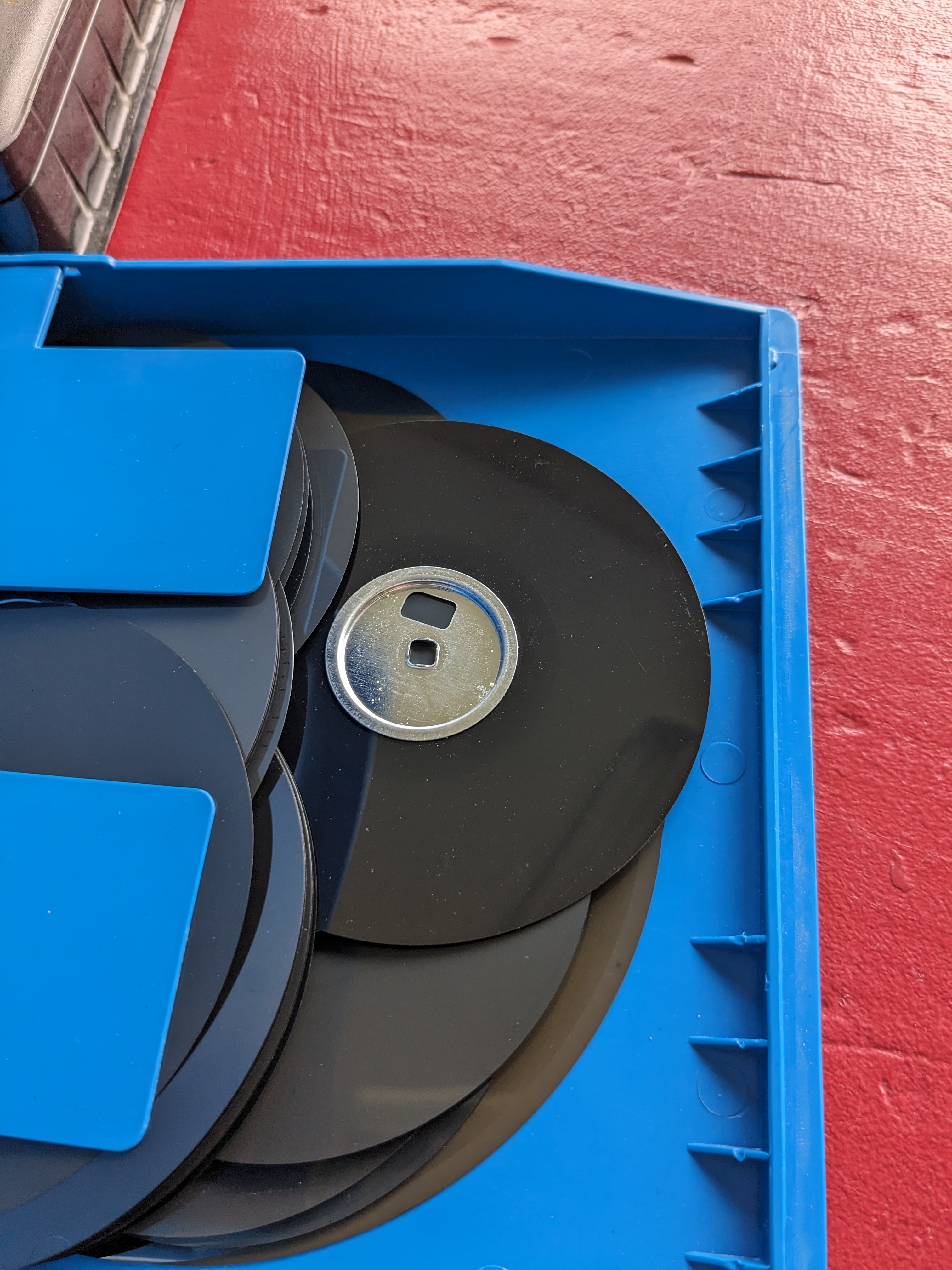old floppy disks of different sizes. the bottom looks like 5 1/4" the ones on top with the metal centers are all 3 1/2". Both standards needed sleeves to be read. Many of these are likely trash now but that wouldn't stop me from trying to load them.
Technology
This is a most excellent place for technology news and articles.
Our Rules
- Follow the lemmy.world rules.
- Only tech related content.
- Be excellent to each another!
- Mod approved content bots can post up to 10 articles per day.
- Threads asking for personal tech support may be deleted.
- Politics threads may be removed.
- No memes allowed as posts, OK to post as comments.
- Only approved bots from the list below, to ask if your bot can be added please contact us.
- Check for duplicates before posting, duplicates may be removed
Approved Bots
Both standards needed sleeves to be read.
For 3.5", yes. 5.25" disks could be removed from their protective enclosures, inserted into a drive, and used as normal. At least until the exposed medium was damaged by fingerprints or other debris. Not something you would normally do though. Source: Did it myself a few times mostly out of curiosity.
This. When my favourite floppies started to have a worn sleeve (especially 3.5", where that metal protective covers started to bend out a bit, threatening to jam in the drive), I usually transplanted the disk itself over to a new sleeve.
Trash now.
Buffalo bill works there
From Beagle Bros - Wikipedia:
Beagle Bros was an American software company that specialized in creating personal computing products. Their primary focus was on the Apple II family of computers. Although they ceased business in 1991, owner Mark Simonsen permitted the Beagle Bros name and logo to be included on the 30th anniversary reboot of I. O. Silver, released on December 12, 2014 by former Beagle programmer Randy Brandt.
Found via reverse image search:
I know they're floppies but when I see them like this it always reminds me of the first intern role I had at datacard/gemplus UK, I had to change the disk stacks in the main frame at specific times with specific access codes, lift the lid and pull out the disk stacks, put them on a specific numbered trolly and insert the next stack.
Was all very precise and I saw someone screw it once, glad it was a perm staffer and not me, I took so many notes on that process I dreamt of them for years.
Copy A: . B:\
floppy disk days long and gone
 this
this